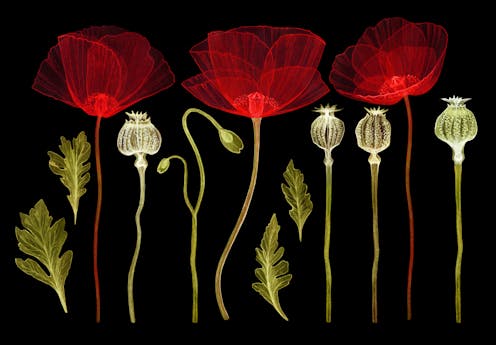Confessions of an English Opium Eater by Thomas De Quincey – a dense, strange journey through addiction
- Written by Jamie Q Roberts, Lecturer in Politics and International Relations, University of Sydney

Drugs are nothing new. As researchers Russil Durrant and Jo Thakker tell us in their 2003 book Substance Use & Abuse[1], drugs such as alcohol, tobacco, opium and cannabis have been used for thousands of years throughout the world. They also show we have known about addiction for a long time – the addictive nature of opium was familiar to Greek and Roman physicians.
But the addict as a cultural figure is more recent: an archetype thrown up by modernity. The names are familiar to us: Amy Winehouse, Kurt Cobain, Brett Whiteley, Hunter S. Thompson, Jack Kerouac, Charles Baudelaire, Samuel Coleridge, Thomas De Quincey. Indeed, it was De Quincey’s autobiographical Confessions of an English Opium Eater, published in 1821, that first gave us this archetype.
The addict can be a beguiling figure. On the one hand, we may admire him or her. We live in prosperous times, where so much is possible, yet many of us are shackled to our grinding lives. The addict seemingly rebels against the quotidian. And for the artist-addict, drugs are a muse.

















